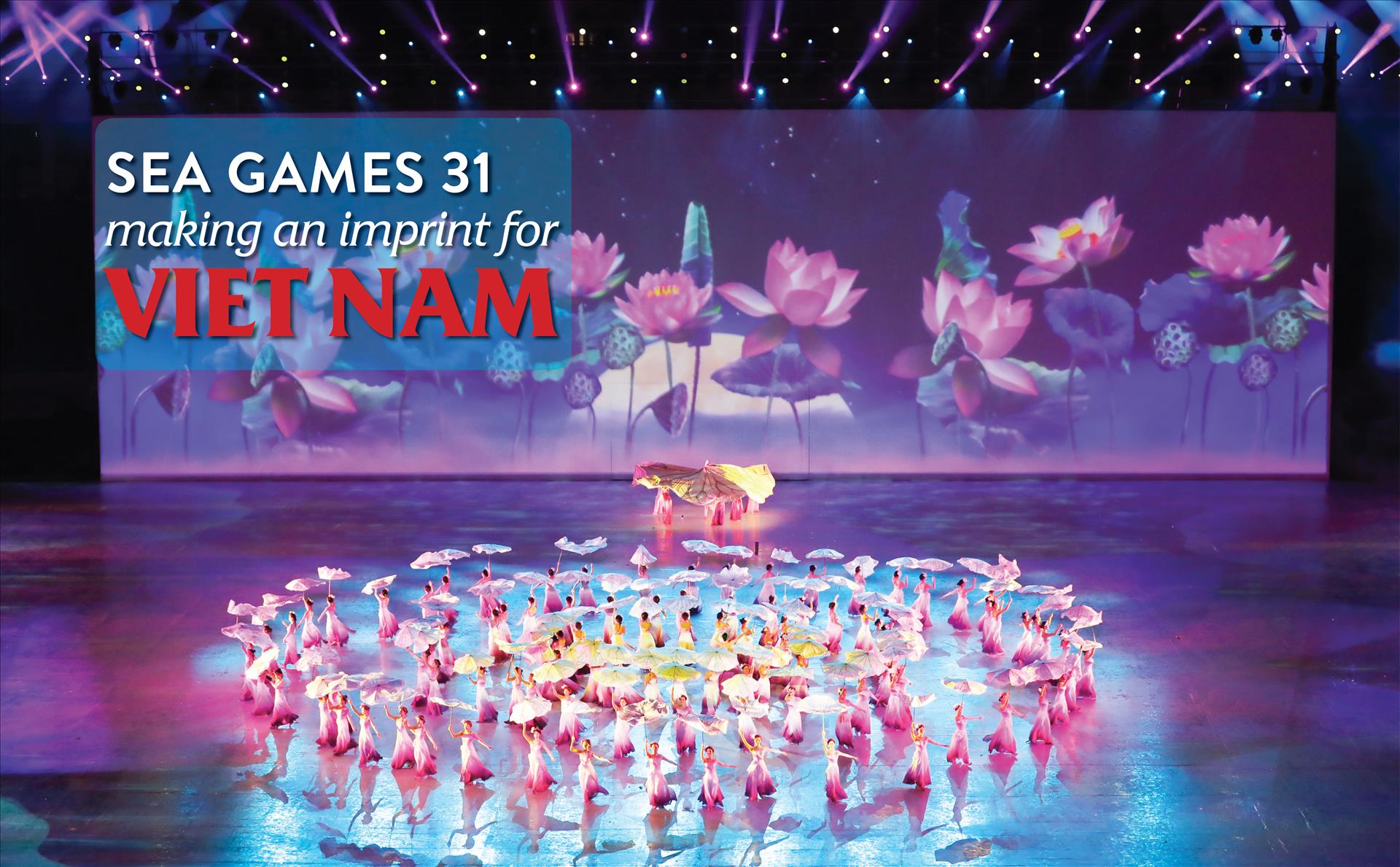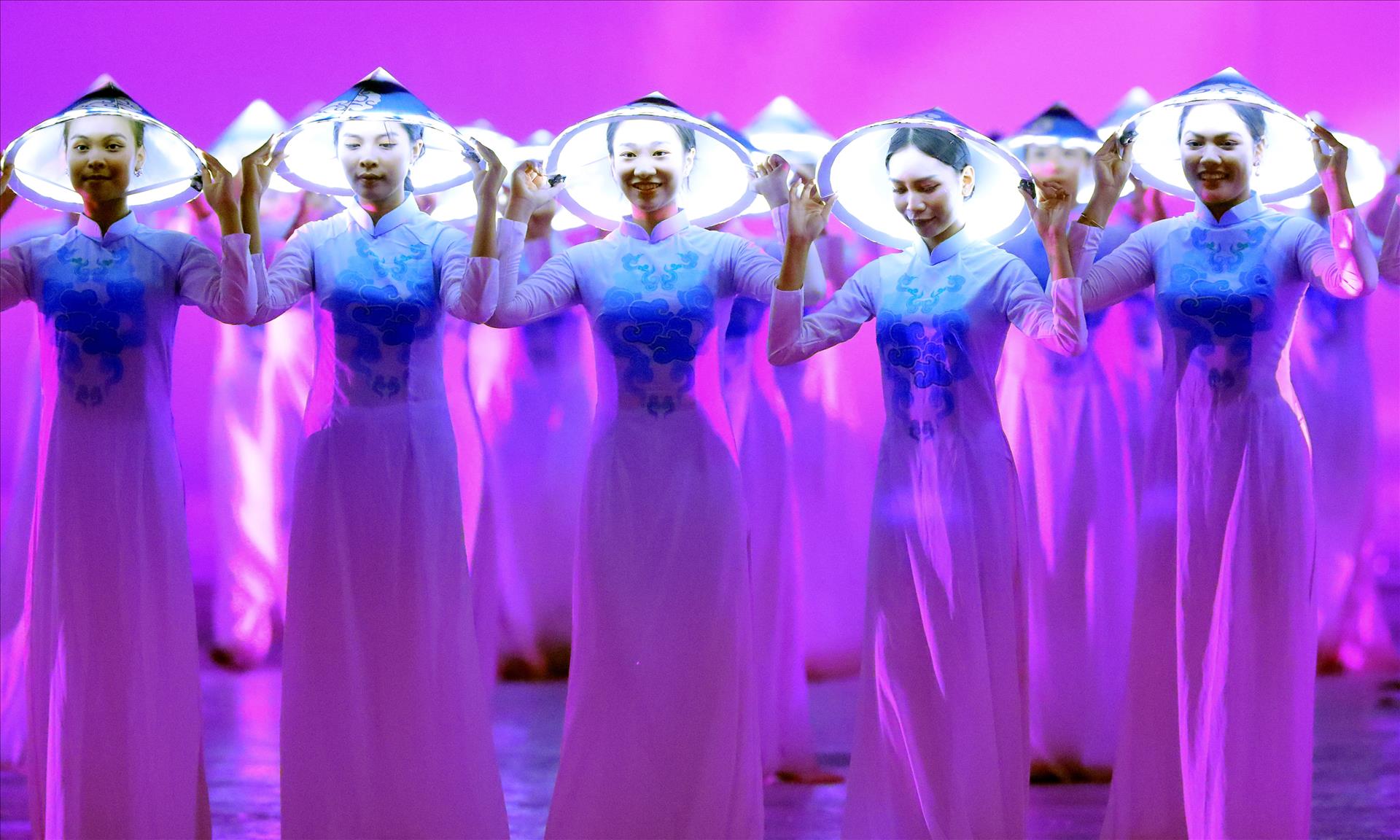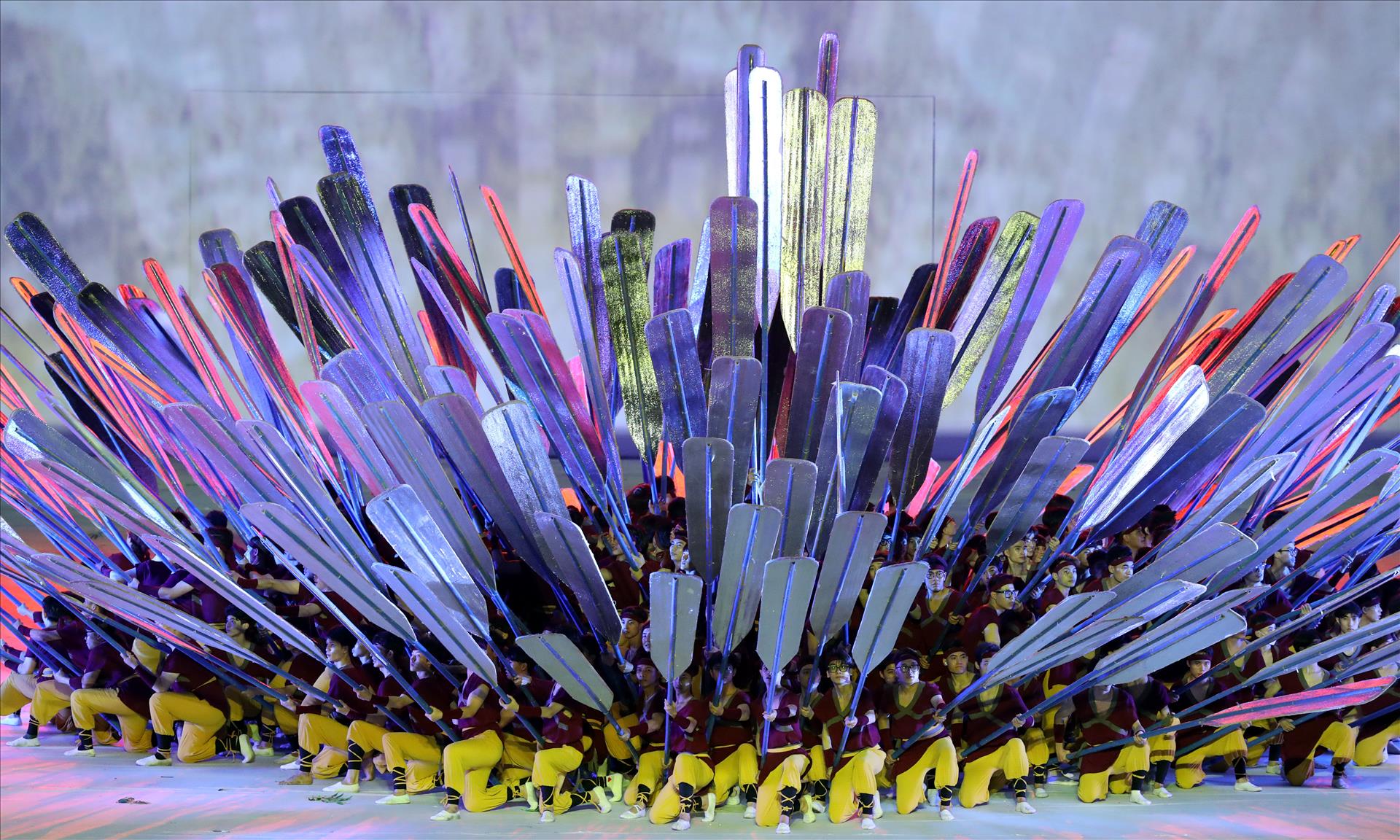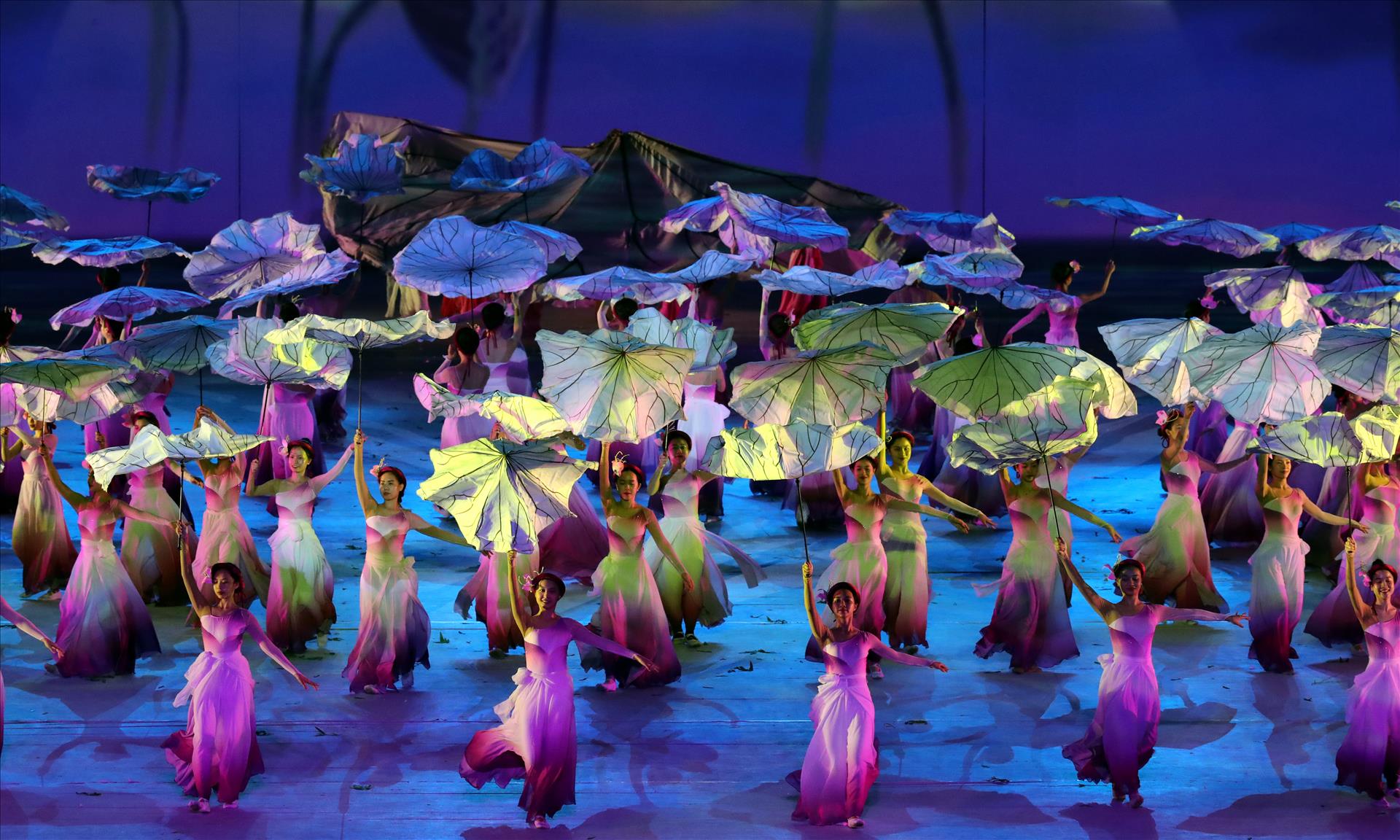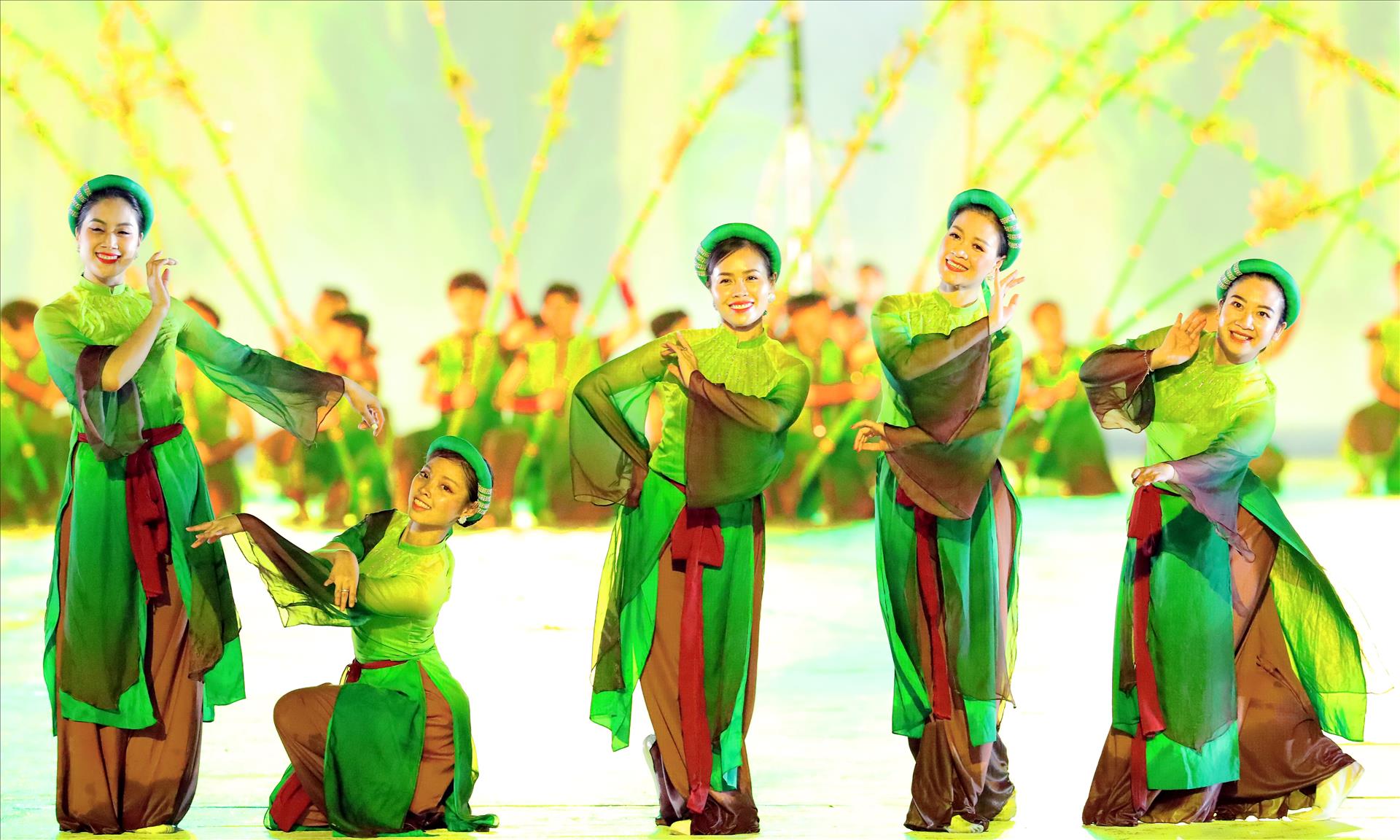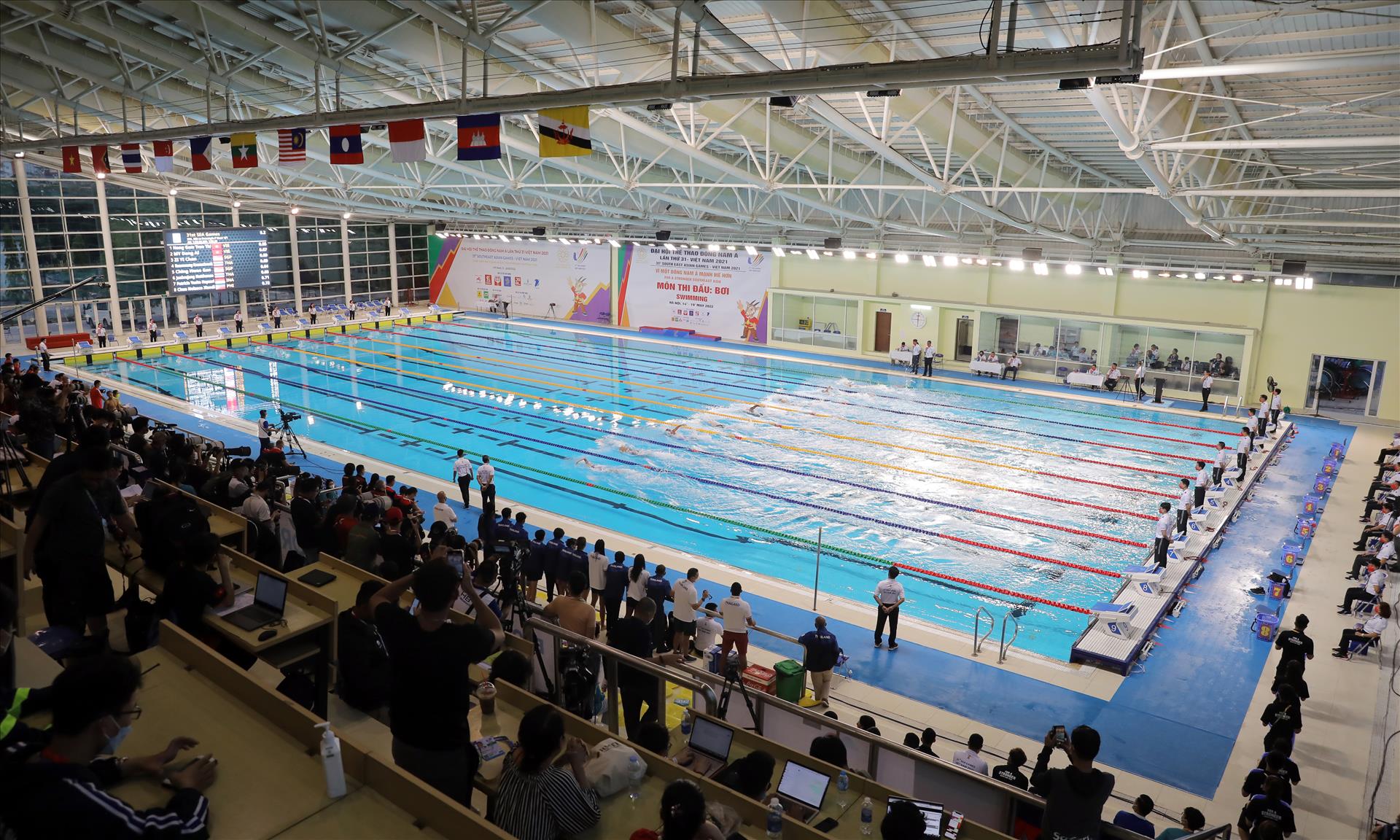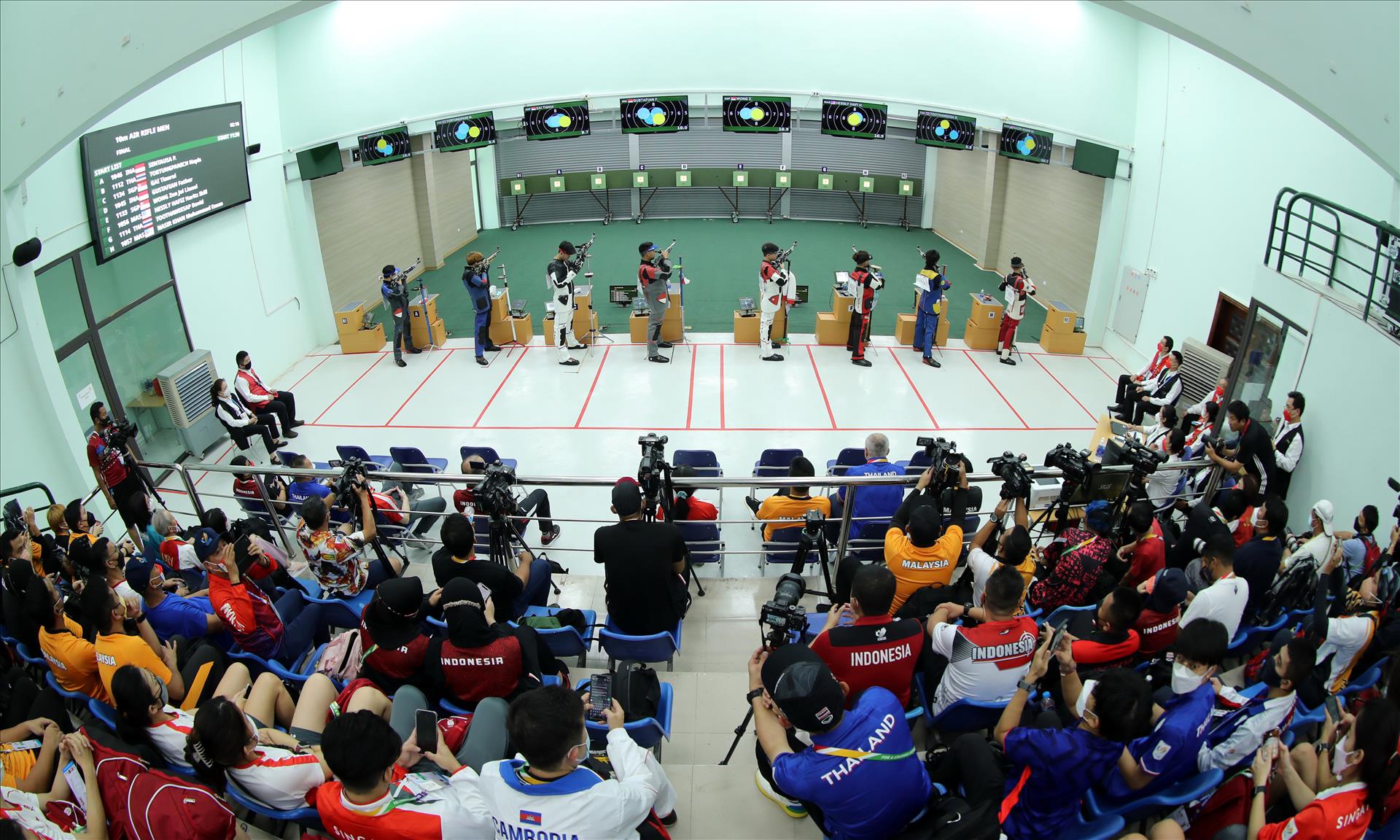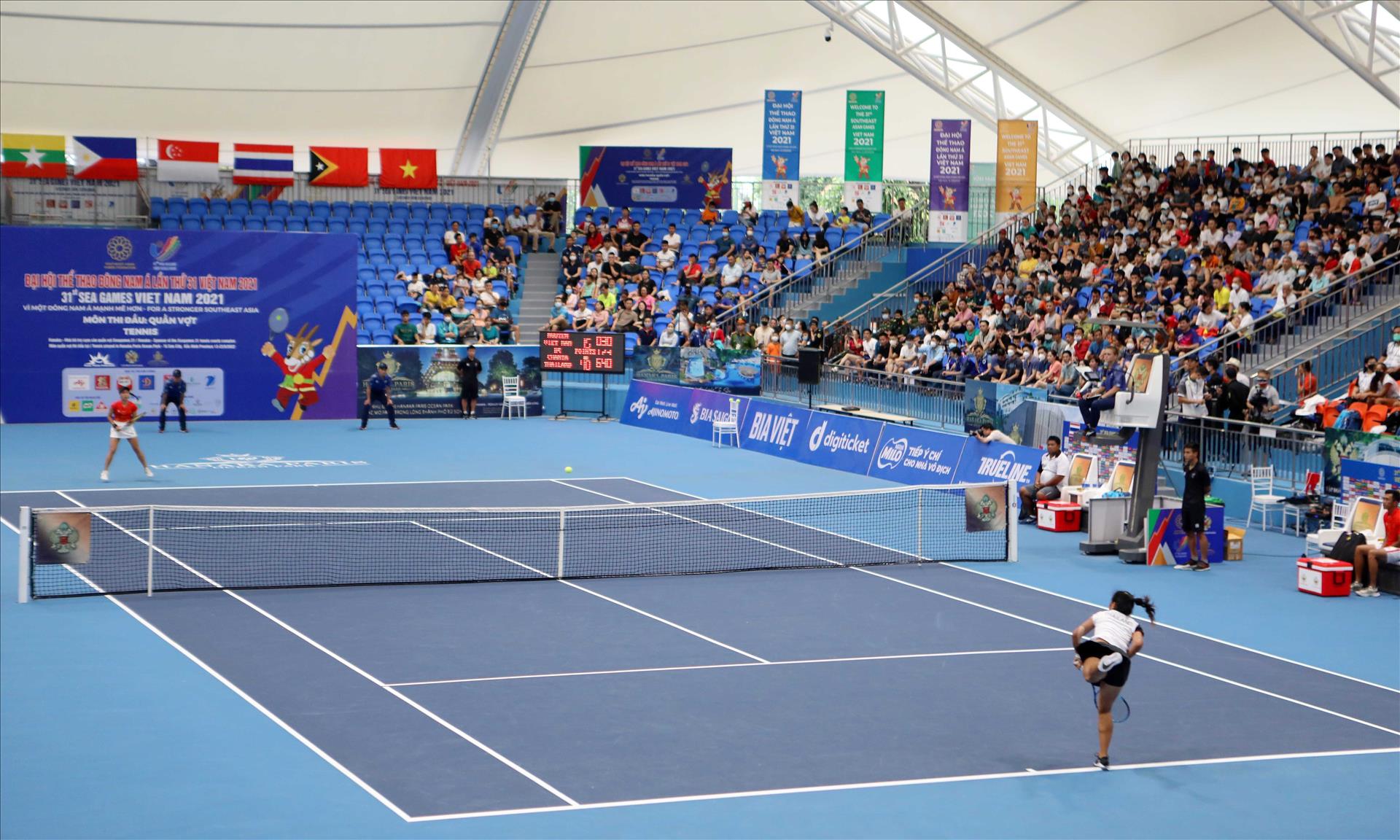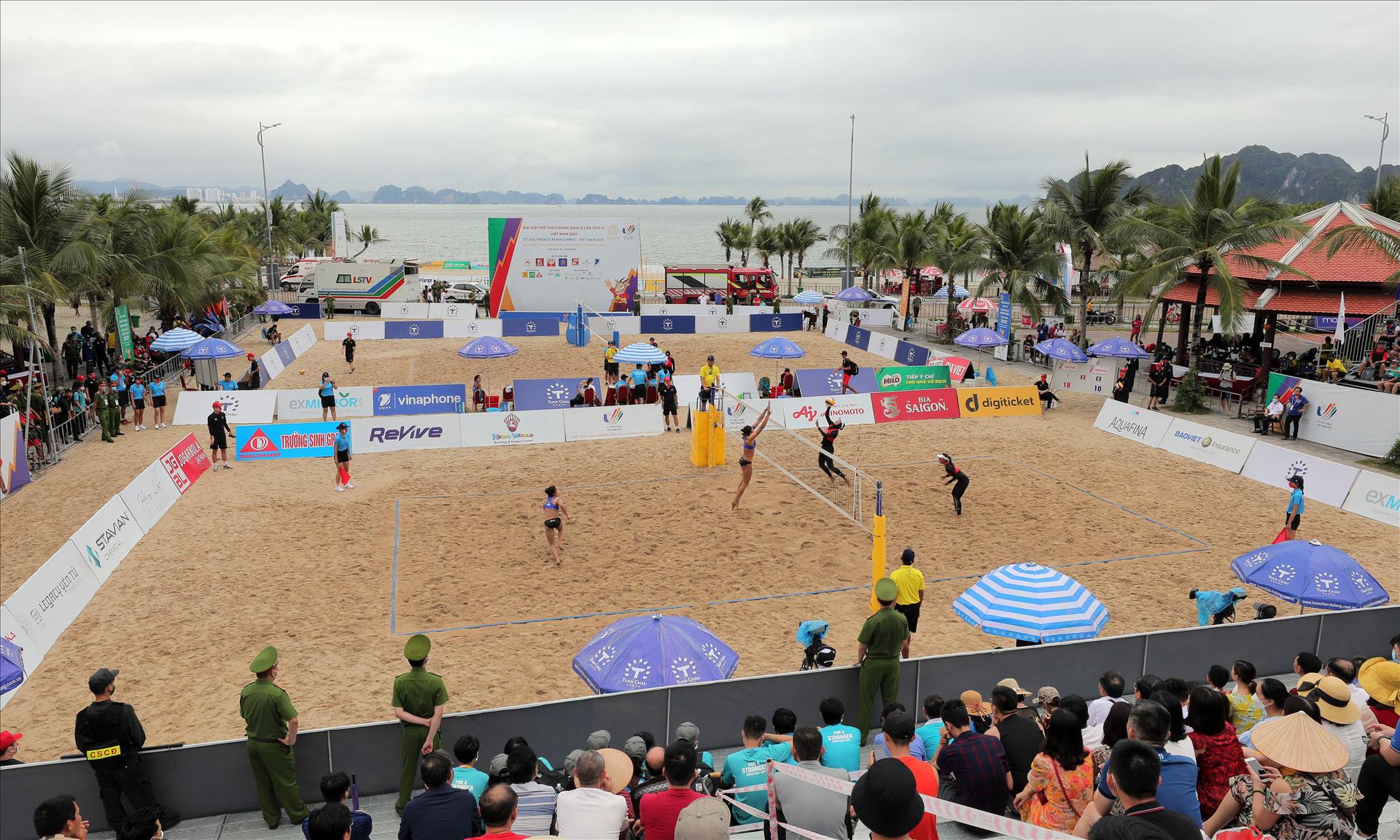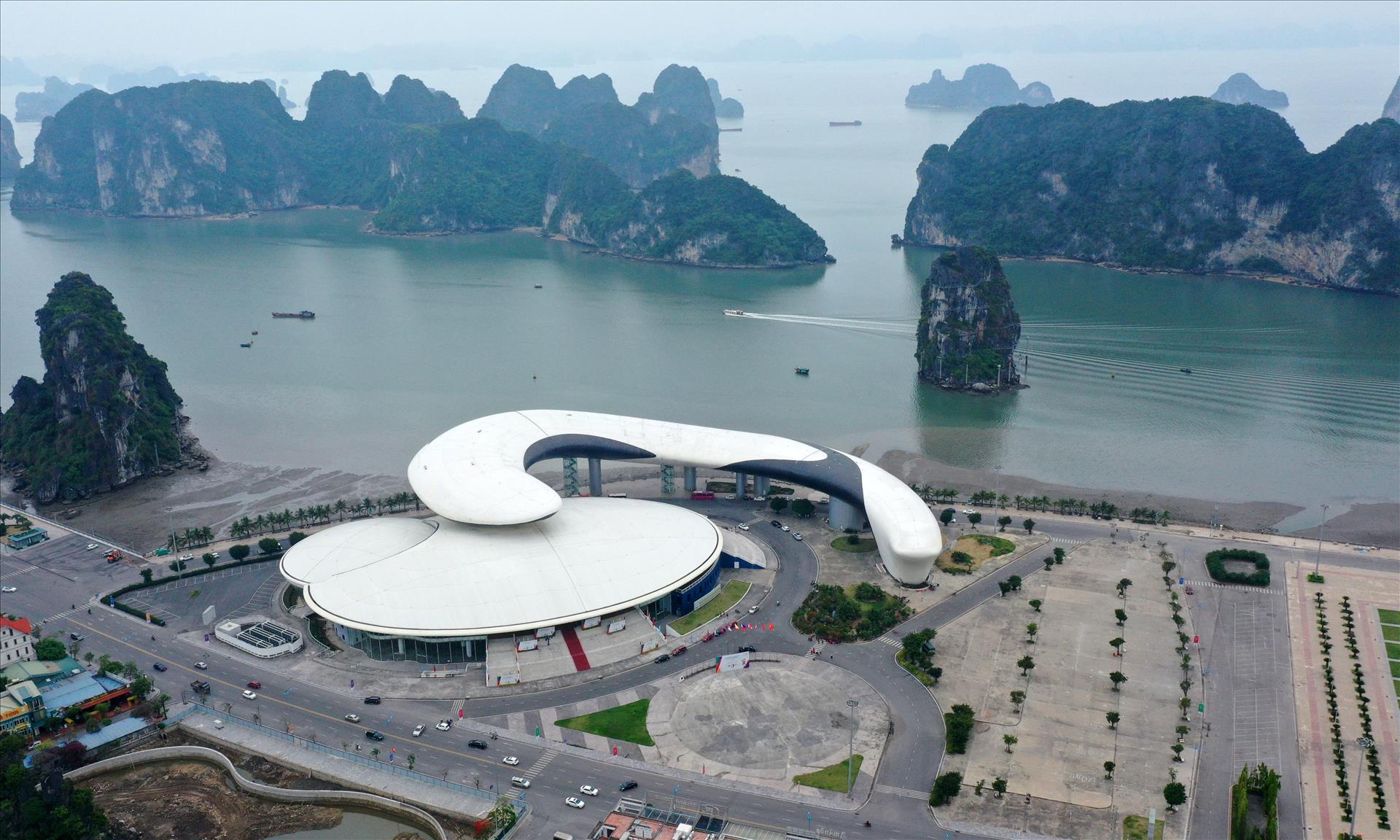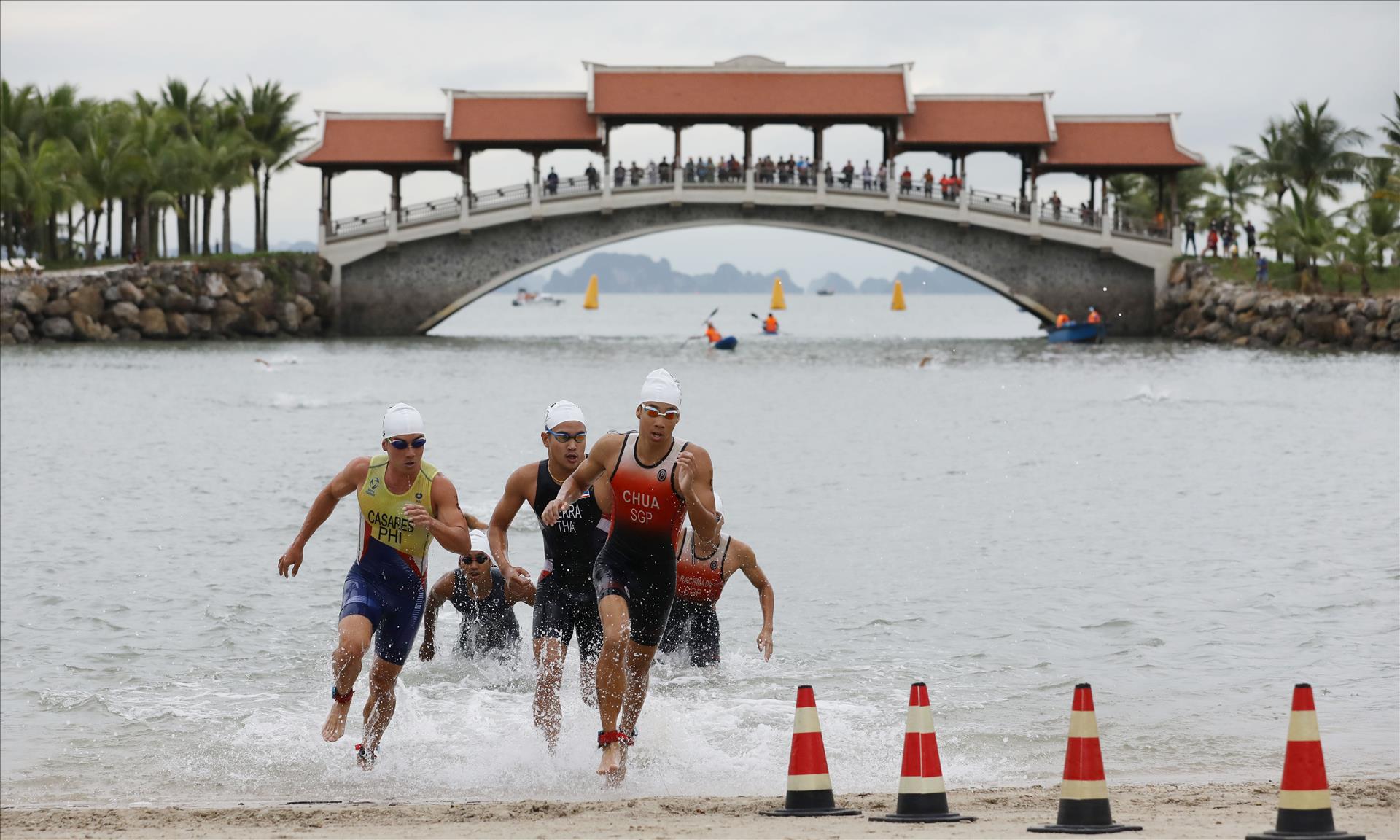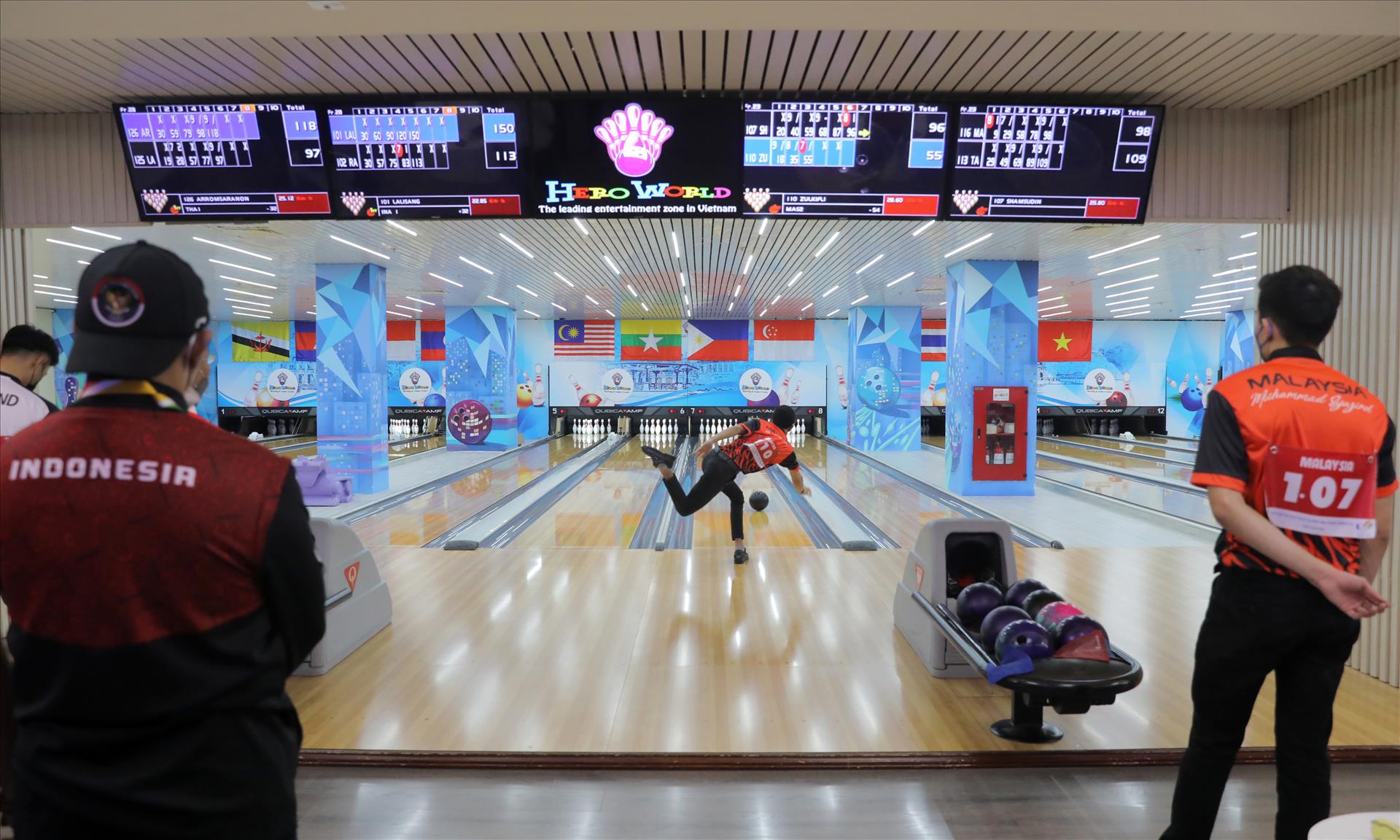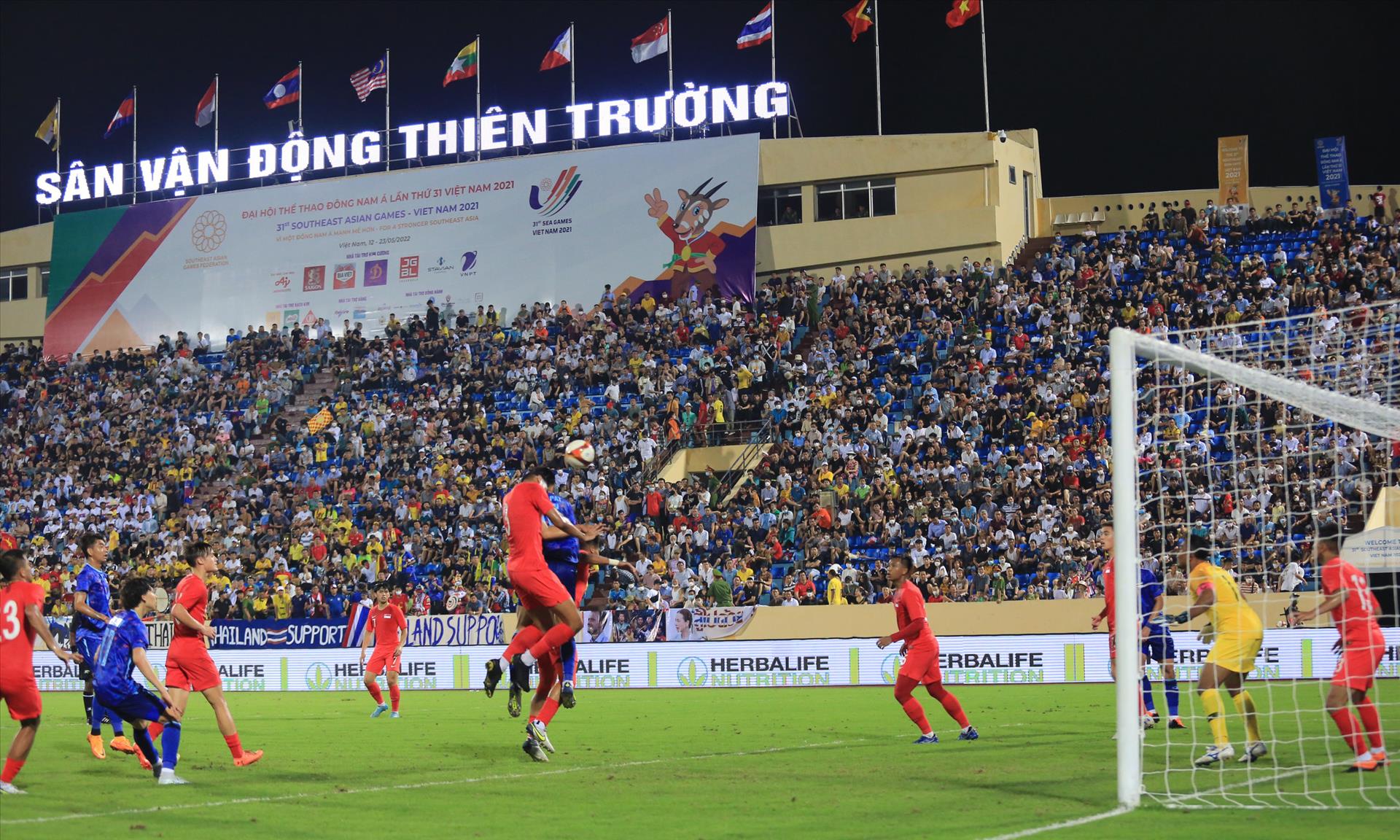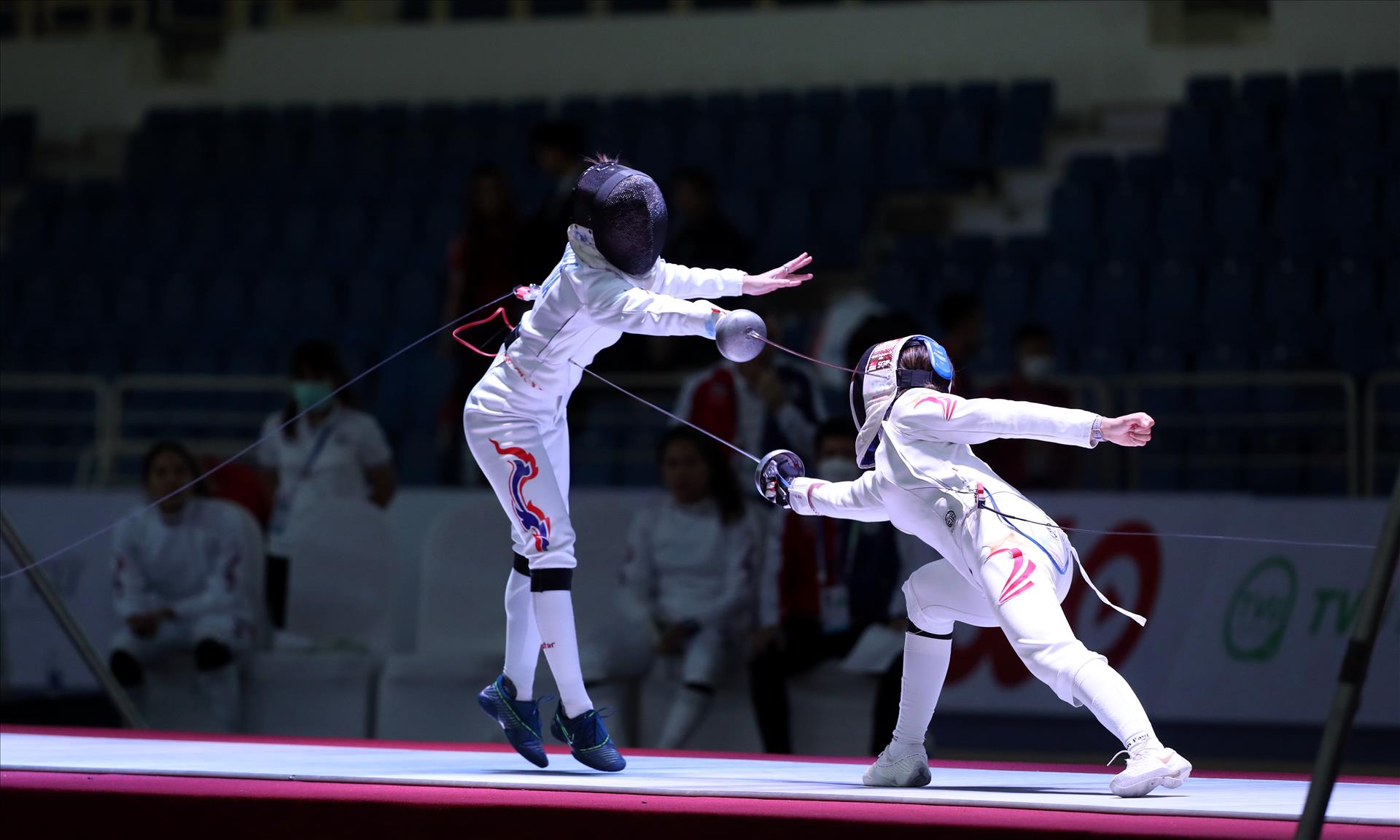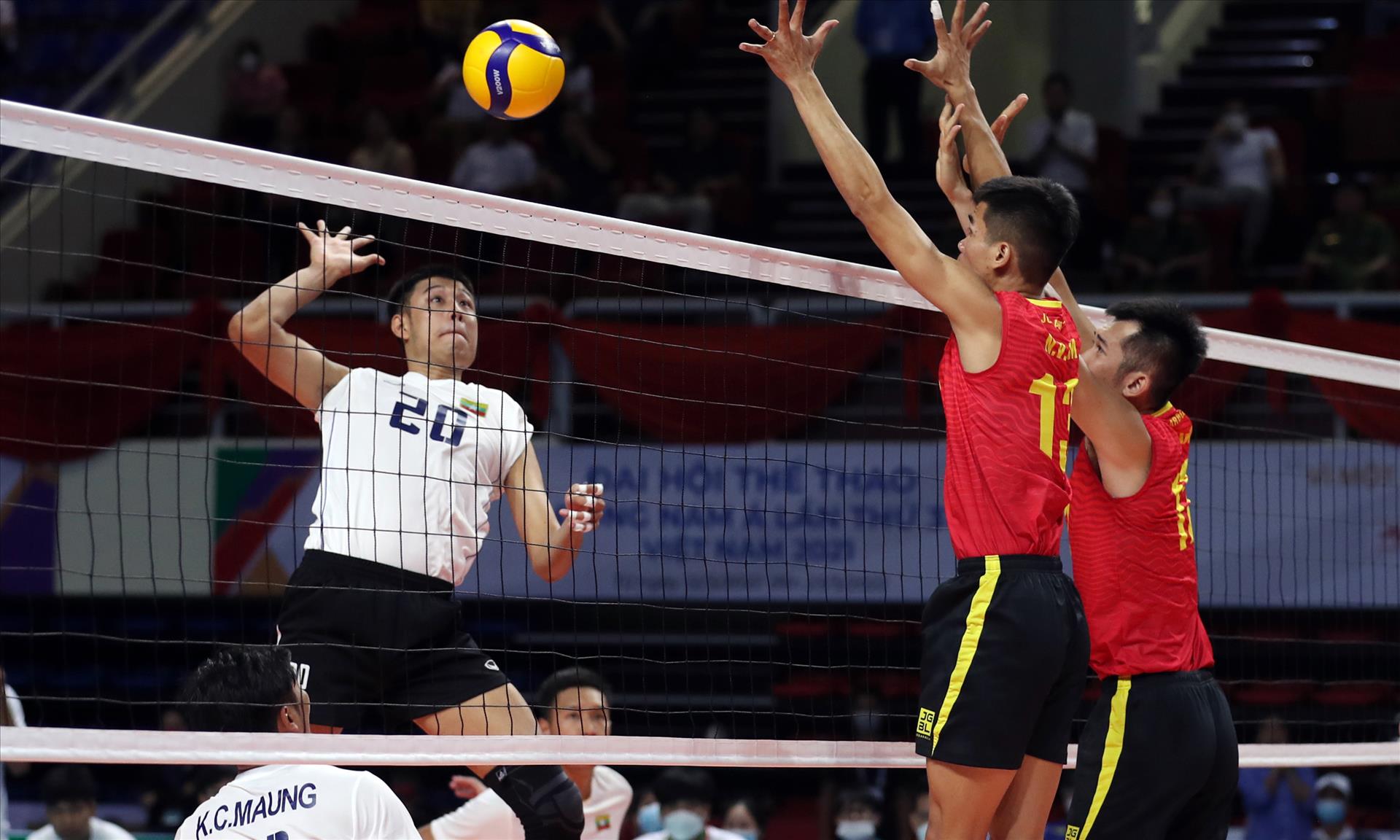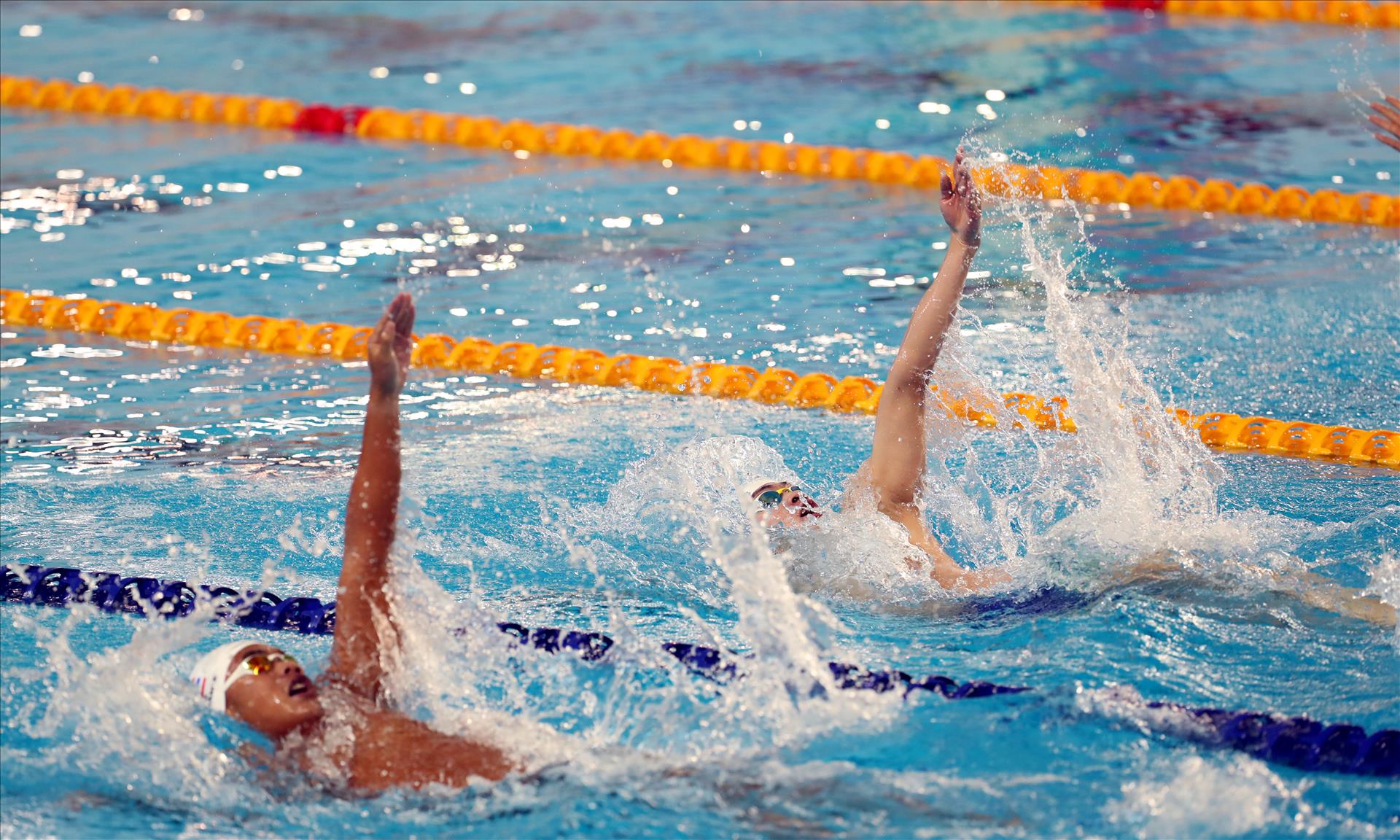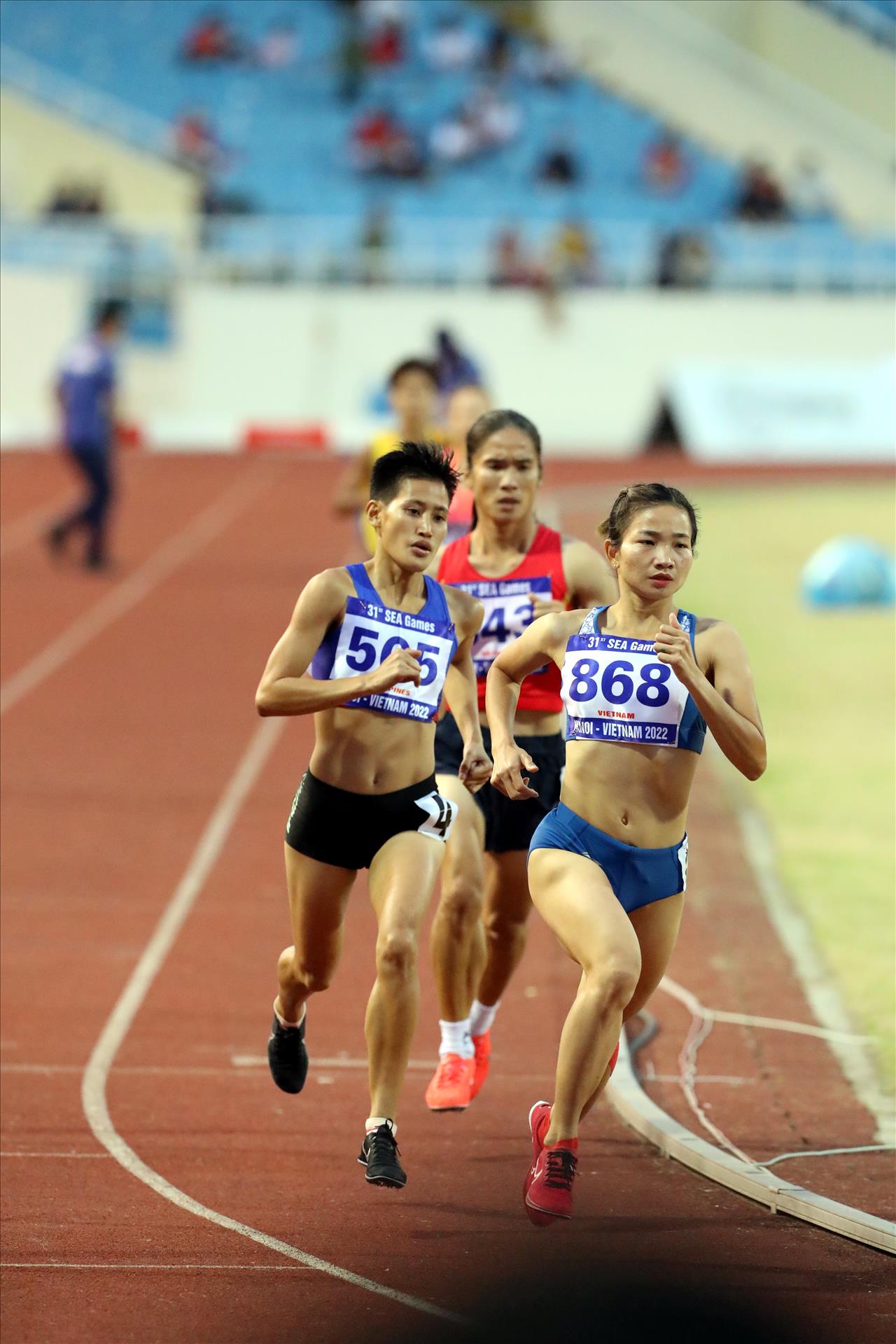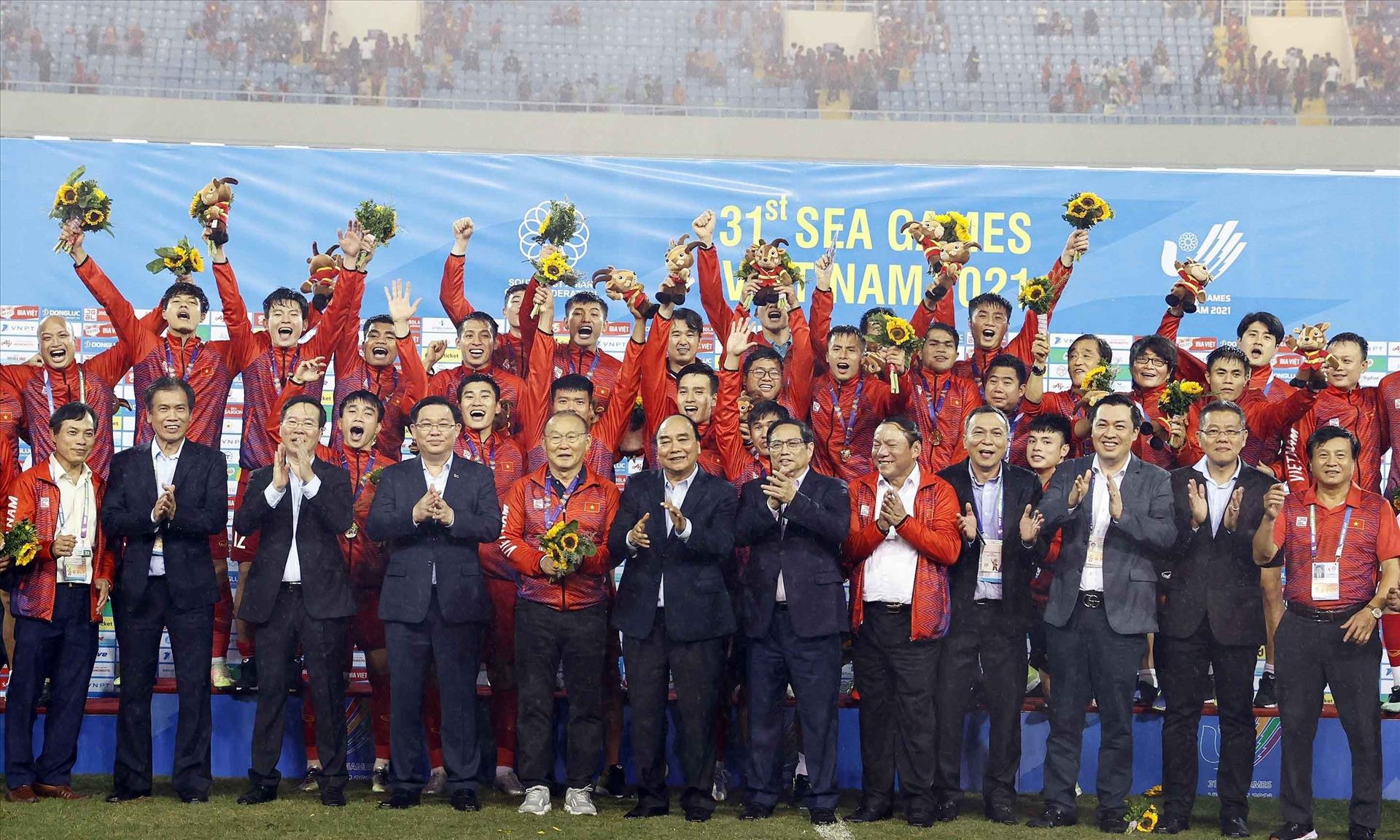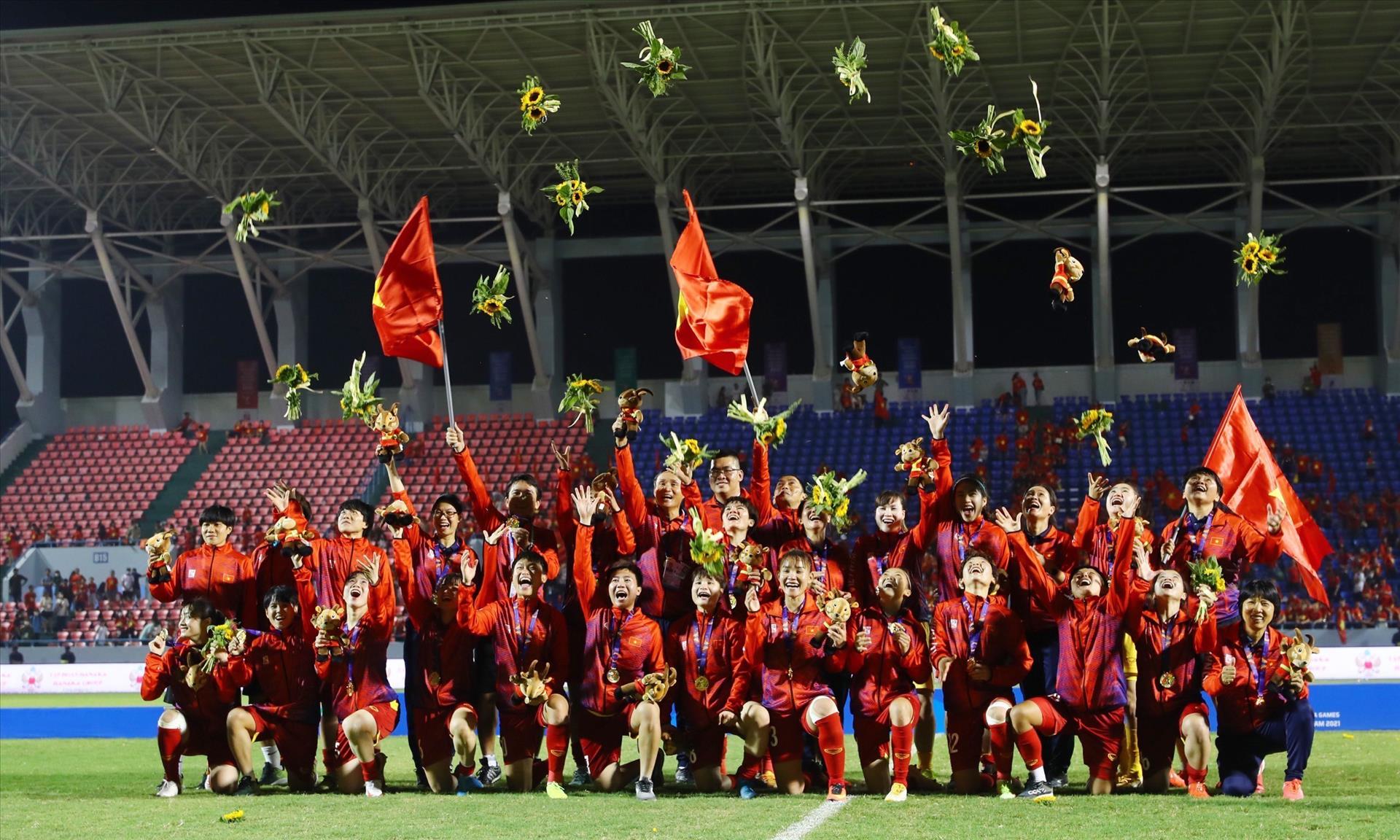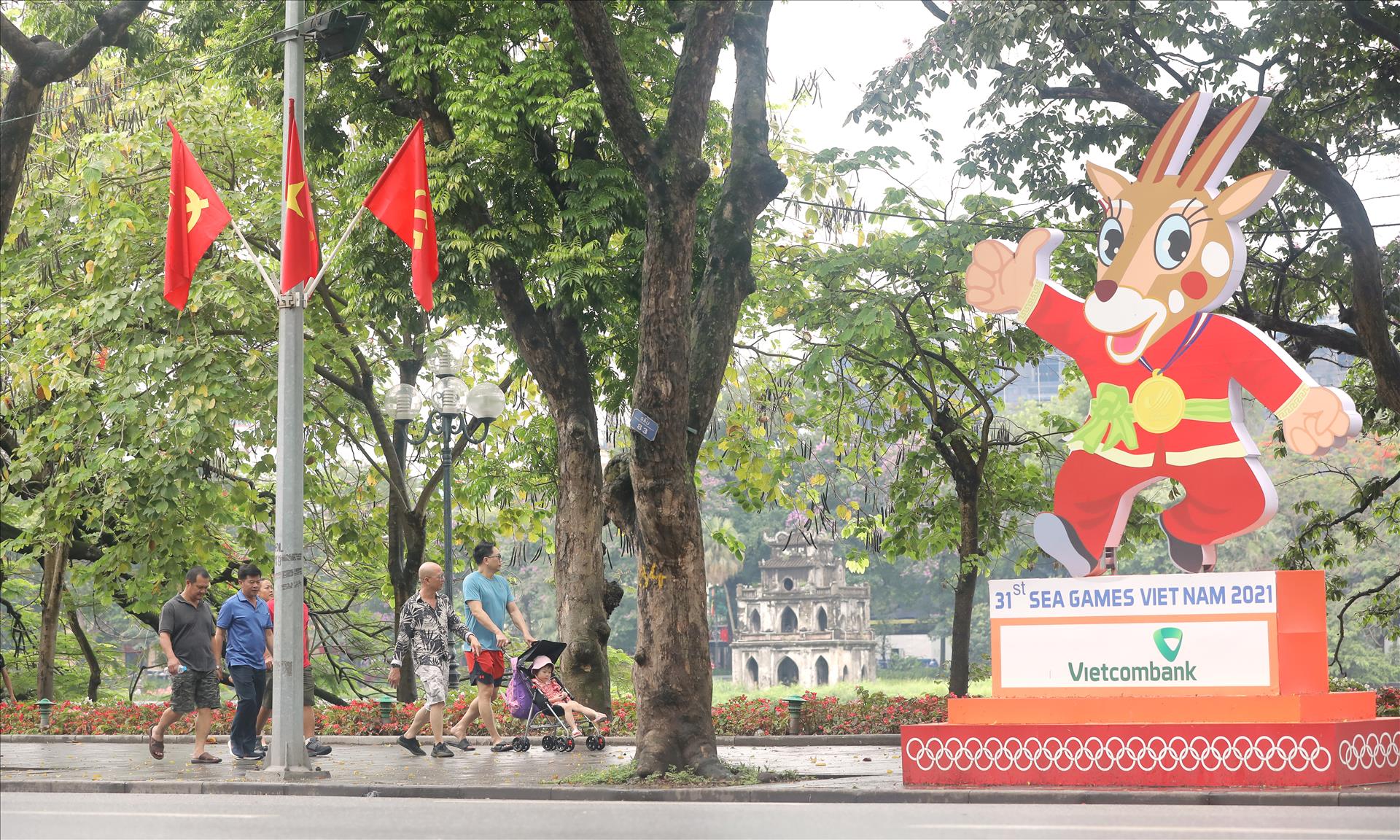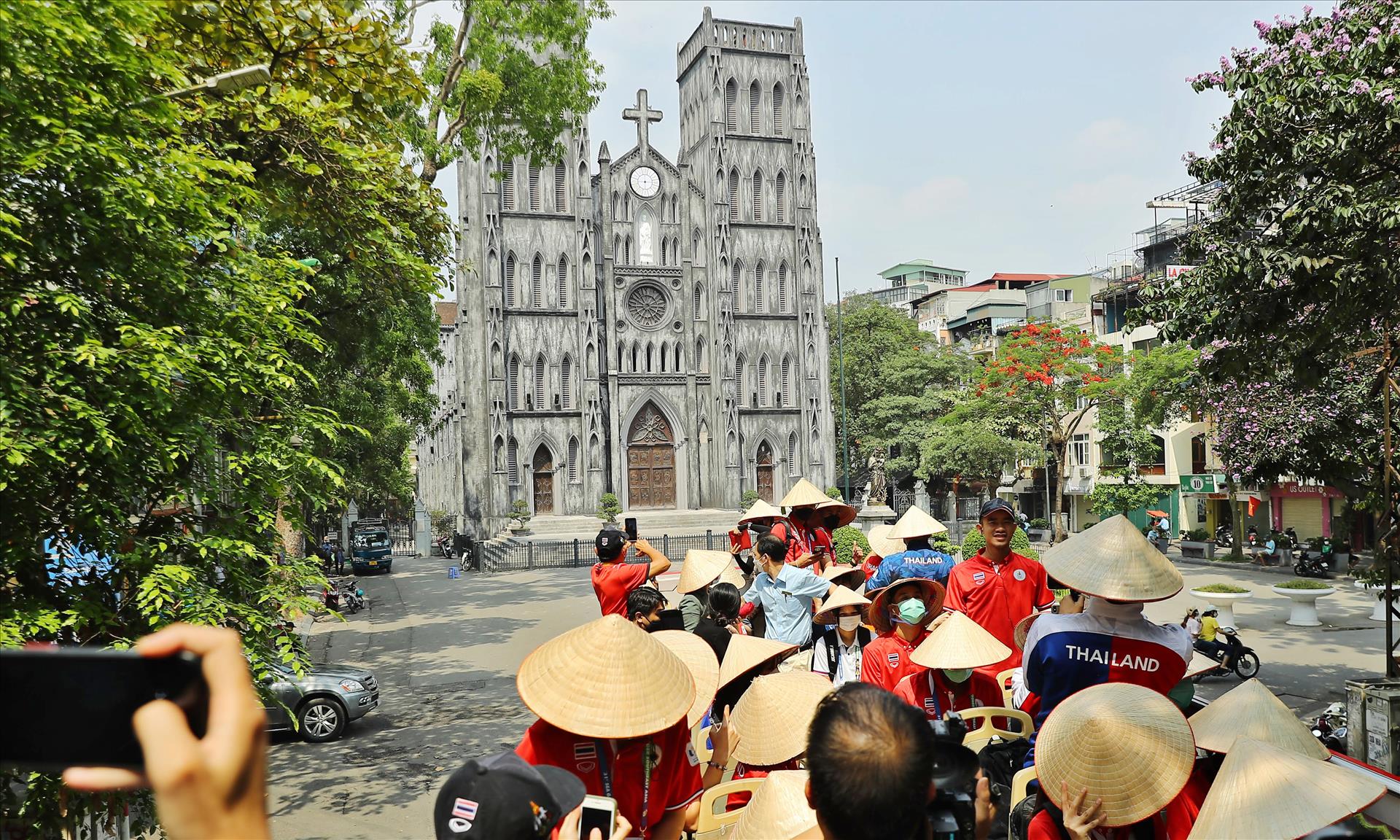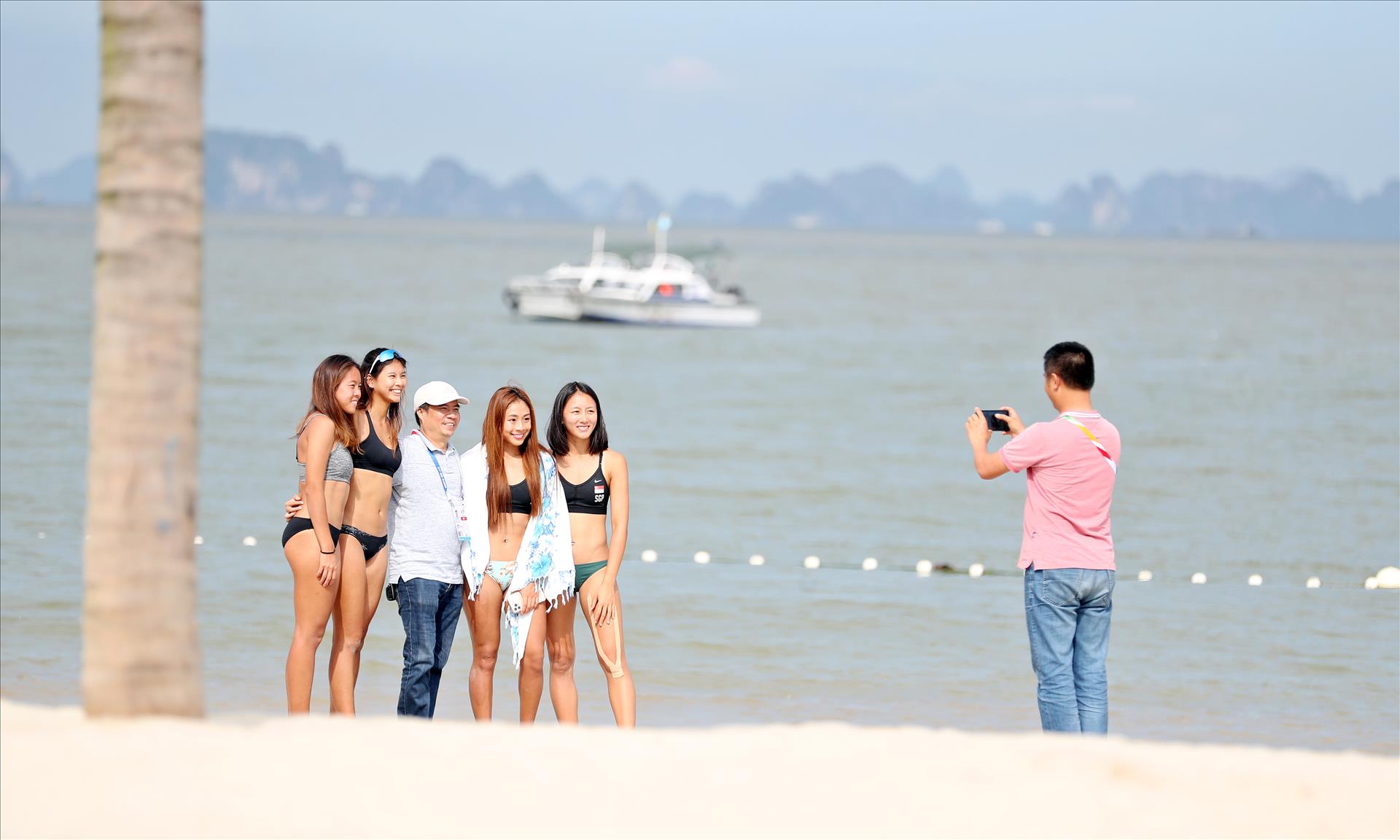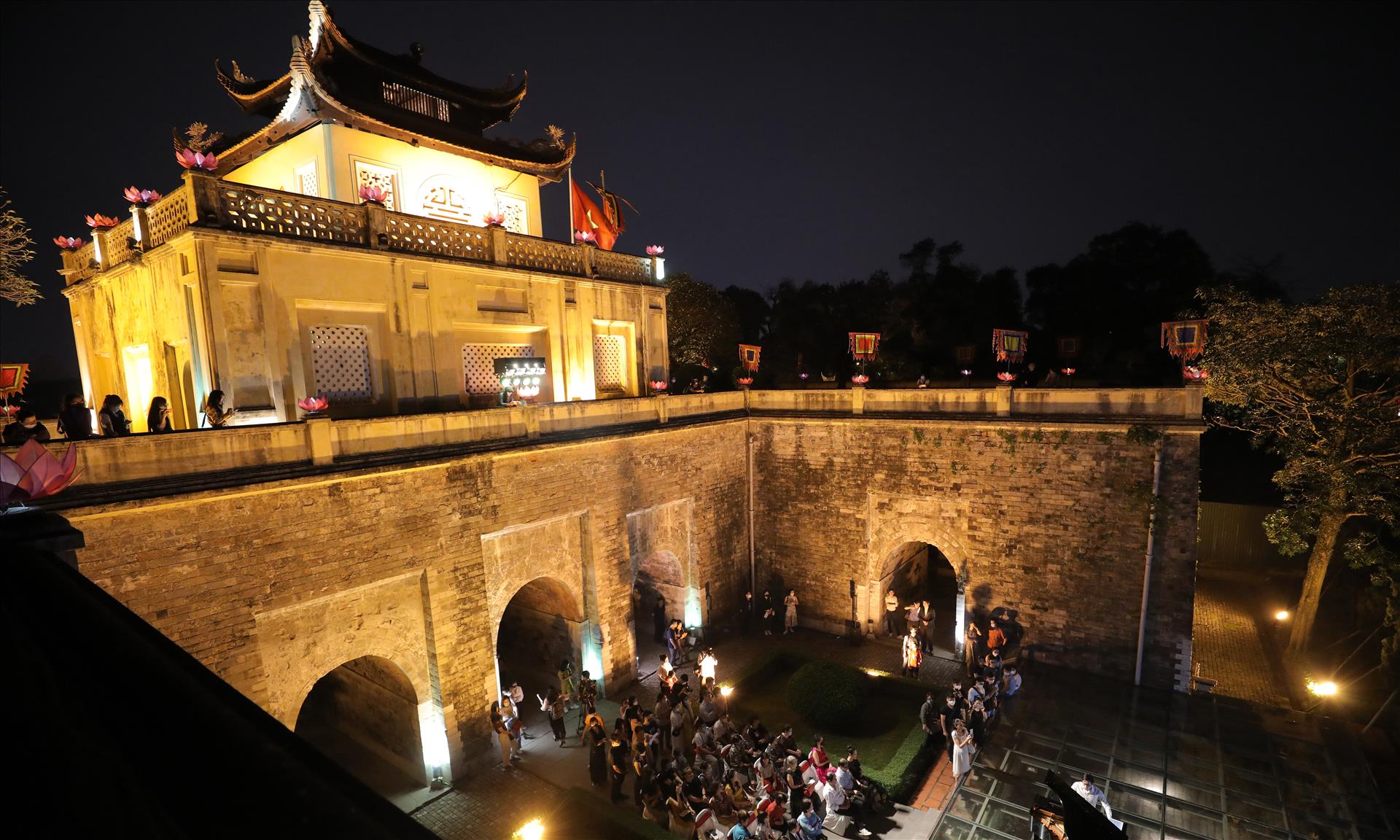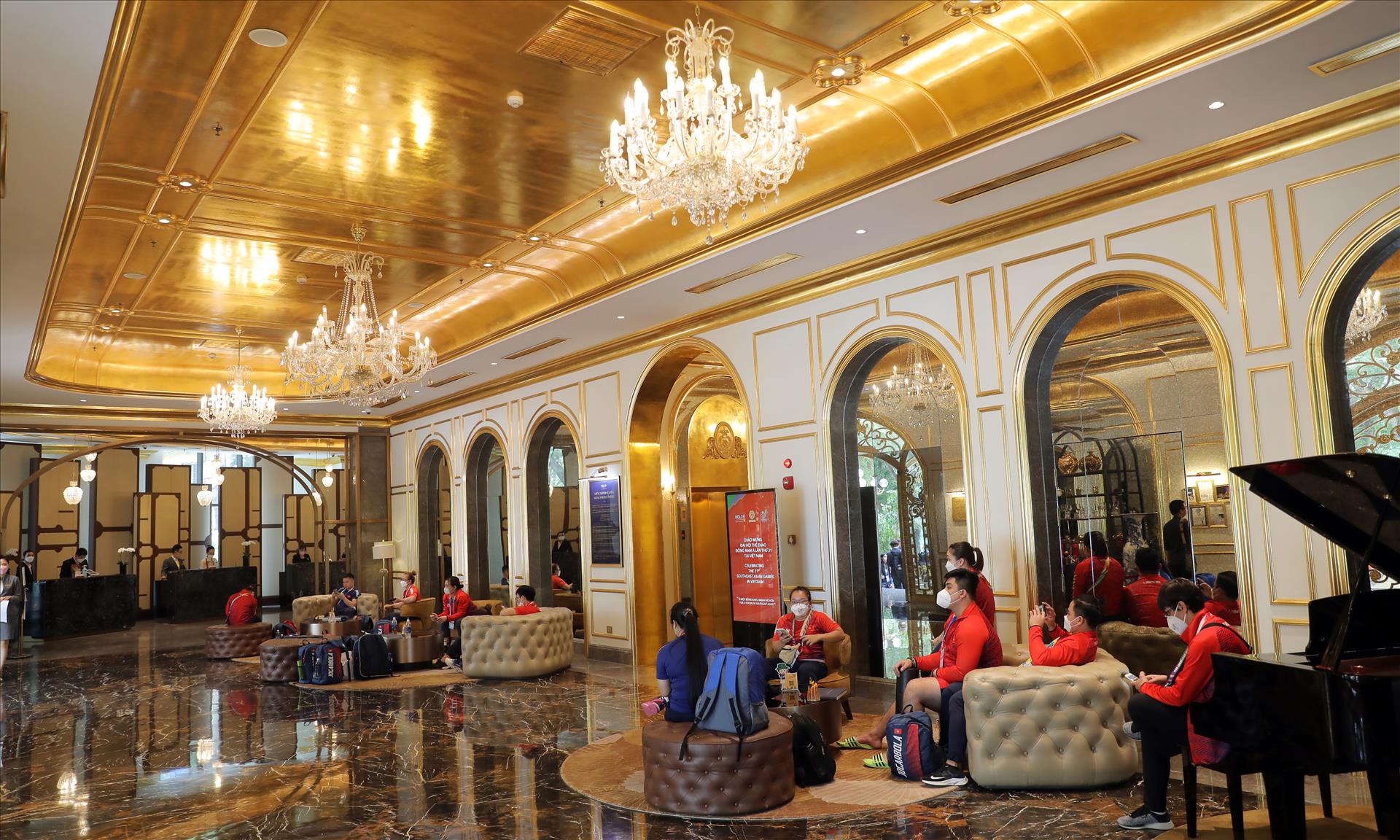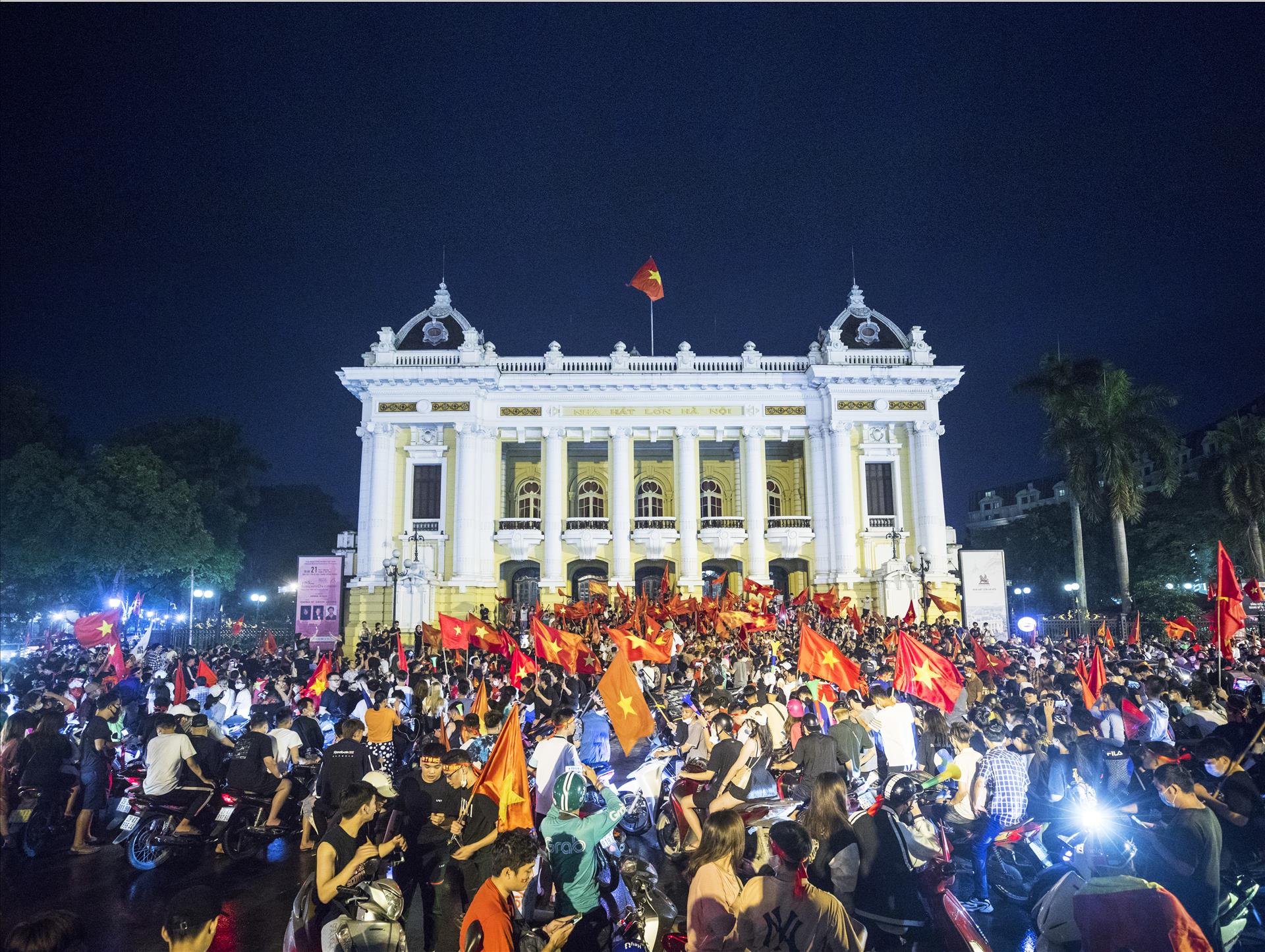SEA Games 31 – making an imprint for Vietnam
Overcoming the difficulties due to COVID-19, Vietnam successfully hosted the 31st Southeast Asian Games (SEA Games 31), the biggest sporting event in the region. The success of SEA Games 31 has affirmed the position of Vietnam on the regional sport map, and at the same time offers an opportunity for international friends to come and see a beautiful and developed Vietnam. It is a country that has successfully controlled the pandemic and is ready to welcome back foreign visitors.
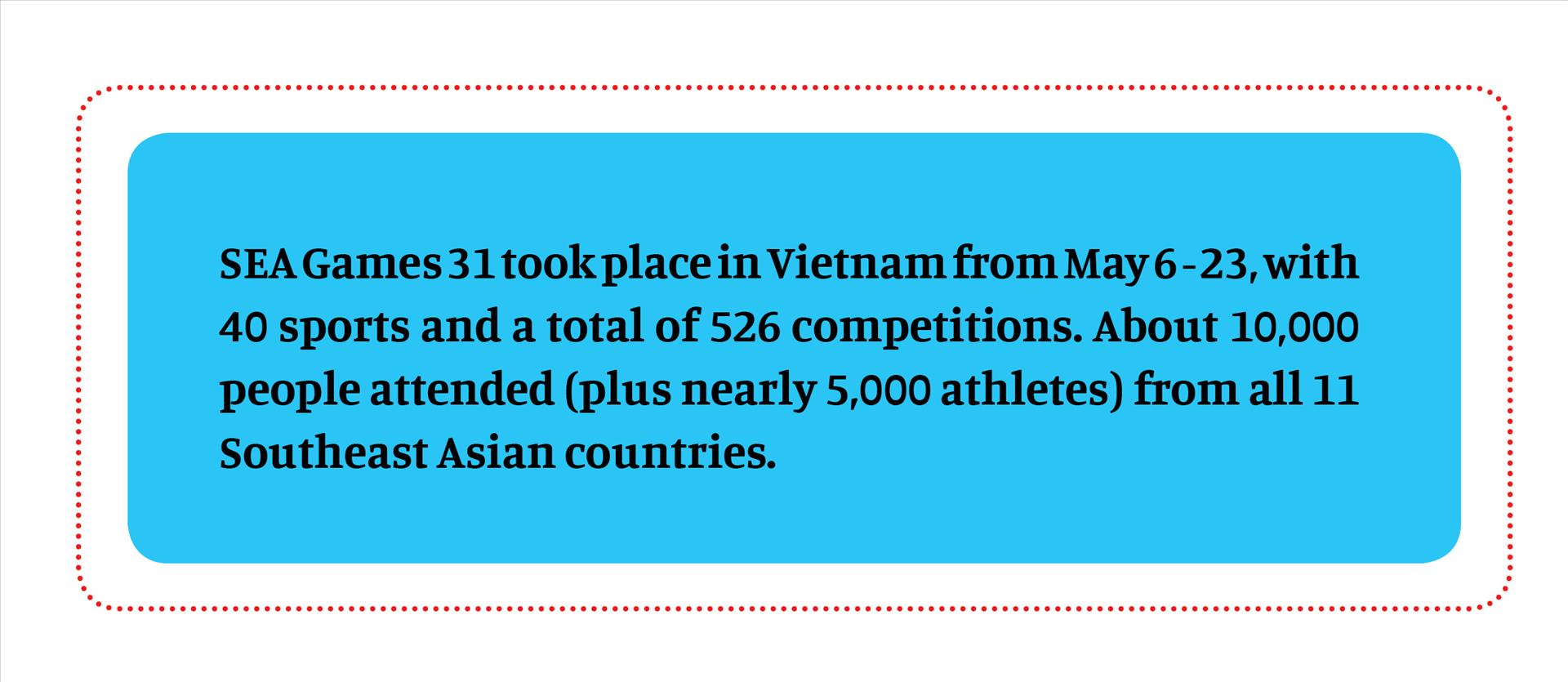
Promoting the message "For a stronger Southeast Asia", SEA Games 31 held in Vietnam not only spread the sports spirit, solidarity and friendship to more than 600 million people of 11 countries in the region, but also gave proof of Southeast Asia ’s strength after 2 years of fighting the pandemic.
SEA Games 31 was held in Hanoi and 11 other localities. Foreign athletes and tourists had the opportunity to experience various modern competition venues, witness the socio-economic development of Vietnam and visit attractive destinations in the host country.
All competition venues used for SEA Games 31 are newly upgraded or constructed. Modern, world-class venues full of spectators have left a great impression on sports delegations, tourists and international friends. Some notable locales are, My Dinh National Stadium , Quan Ngua Sports Palace, Water Sports Palace, Hanoi National Sports Training Center, Thien Truong Stadium (Nam Dinh), Cam Pha Stadium, the sports area of Tuan Chau beach (Quang Ninh), the Hanaka tennis court complex (Bac Ninh), Dam Vac golf course (Vinh Phuc), and the Thuy Nguyen boat racing center (Hai Phong).
Thien Truong Stadium in Nam Dinh, even though it did not host any games of Vietnam’s football team, had a record number of spectators and created an atmosphere that was so passionate that the homepage of the Southeast Asian Football Federation (ASEAN Football) posted "overwhelming" images of the stadium with impressive comments. For example, “What a passionate atmosphere. 30,000 fans were present at Thien Truong Stadium tonight (May 7). This is a new record for a match with the most spectators at a neutral stadium in SEA Games history.”
The logistics, reception, ceremony and accommodation of athletes were also highly appreciated. Thana Chaiprasit, Head of the Thailand delegation, commented, “Vietnam, like all of us, has been fighting COVID-19 for the past two and a half years. It has overcome all kinds of difficulties to organize a successful event in all aspects, from the well-trained staff, the technical standards at competition venues, the security, the schedule and the transportation, to all the logistics and accommodations. Back in 2003 (the first SEA Games held by Vietnam), we all stayed in the sports village but now everyone is staying in 4-5star hotels. It's a huge change!"
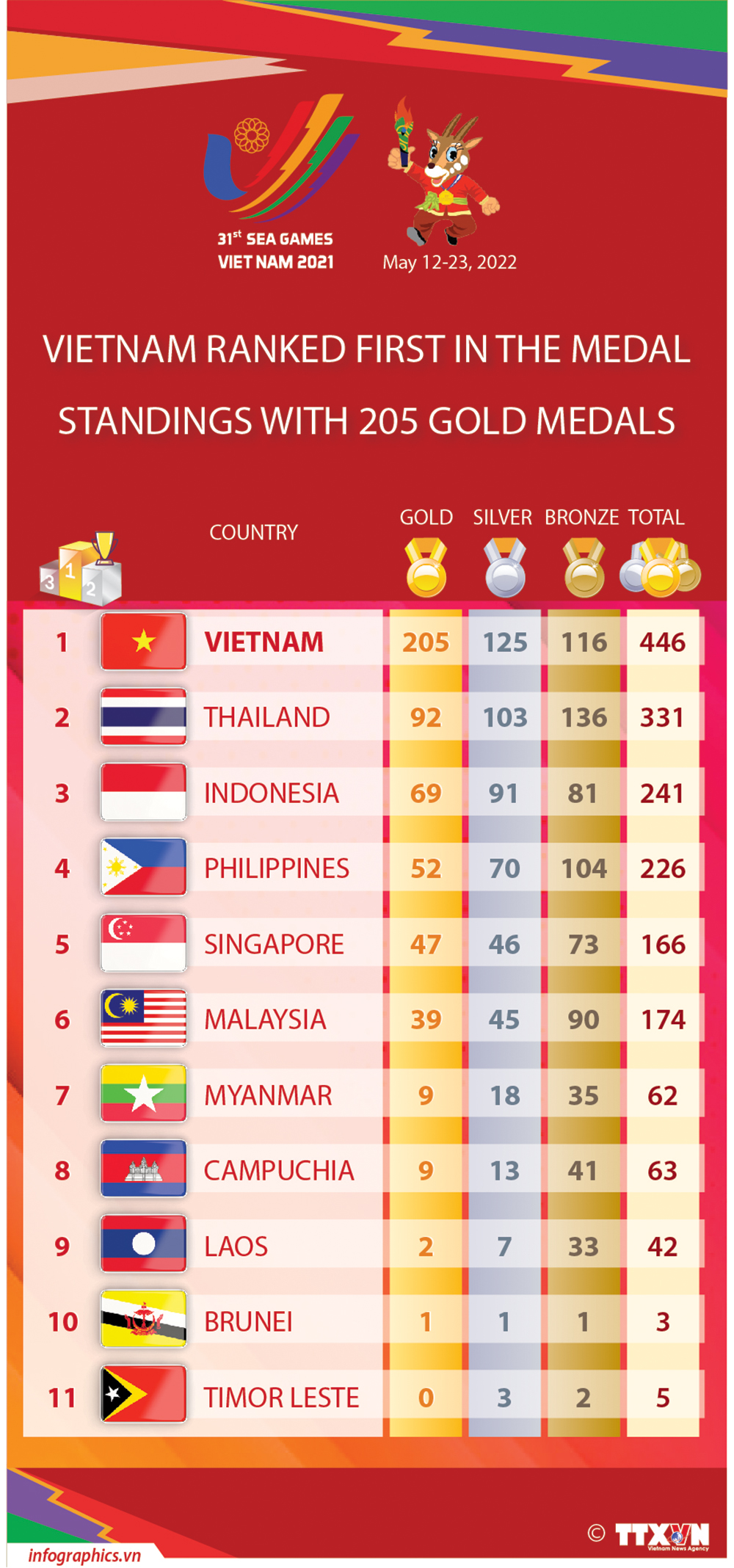
Hanoians celebrate the victories of the men’s U23 football team and the women's football team of Vietnam at SEA Games 31.
Commenting on the organization, the chairman of the Singapore National Assembly and also chairman of the Singapore National Olympic Committee, Tan Chuan-Jin, who attended the Opening Ceremony and matches of SEA Games 31, offered high accolades. He said, “It is difficult to organize a huge event like SEA Games amid the lingering effects of COVID-19, not to mention many other challenges. To be able to pull off such a feat, Vietnam has proven their top-notch level capability. I have talked with the athletes and staff of the Singapore delegation and they all are thankful for the arrangement of this SEA Games, and especially the warm and friendly welcome. It delights me that Vietnam has hosted and organized such a successful SEA Games for the region".
In addition to the organization, warmth and professionalism of the host country, the competitive performance is another decisive factor for the overall success of a sporting event. Identifying the SEA Games as an arena for Southeast Asian countries honing their skills aiming towards larger playgrounds such as ASIAD and the Olympics, Vietnam advocated organizing a fair, competitive and friendly tournament. SEA Games 31 took advantage of innovative technology in the refereeing and other monitoring work. Most notably, the abolishment of the old precedent of choosing competing sports which leaned towards the host’s strengths, instead of advocating using similar sports to the Olympics in order to create fair competition and promote overall regional sports performances.
SEA Games 31 was an intense competition that gathered together world-class athletes. One example is the competition between gymnast Dinh Phuong Thanh of Vietnam, who won the bronze medal at the 2014 ASIAD, and gymnast Carlos Yulo of the Philippines, the 2019 world champion, in the parallel bars category. Dinh Phuong Thanh defeated Carlos Yulo to win the gold in a breathtaking battle. SEA Games 31 also witnessed many SEA Games records that were broken. These included, Ernest John Obiena (Philippines) - pole vault, Puripol Boonson (Thailand) - men's 200m, Nguyen Thi Oanh (Vietnam) - 3,000m hurdle, Quah Jing Wen (Singapore) - women's 200m, Pham Thanh Bao (Vietnam) - 100m breaststroke, Teong Tzen Wei (Singapore) - men's 50m butterfly, Tran Hung Nguyen (Vietnam) - 400m medley men, Nguyen Huy Hoang (Vietnam) - 400m freestyle and Lo Thi Hoang (Vietnam) - javelin.
SEA Games 31 has ended, but its echoes still linger. Next to the impressive sports achievements, Vietnam has left beautiful impressions in the hearts of international friends about a country that loves sports, is hospitable, a nation that is confident, dynamic, developed, and has the ability to overcome the difficulties of a pandemic to successfully and safely organize the largest sporting event in the region. It also shows that Vietnam is ready to host larger international events, as well as being open fully to international tourists./.
- Story: Tat Son & Hong Hanh
- Photos: VNP & VNA
- Designer : Trang Nhung
